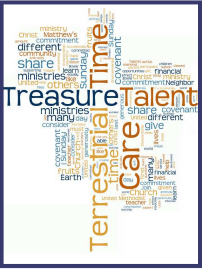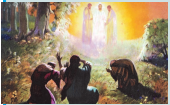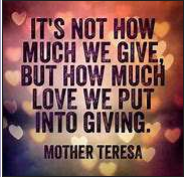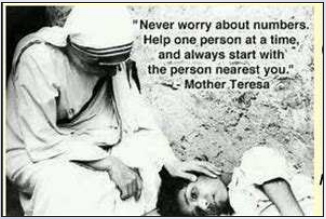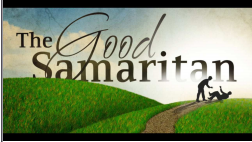WE WERE MADE FOR THESE TIMES
https://stmarystcatherine.org/wp-content/themes/osmosis/images/empty/thumbnail.jpg 150 150 Charlestown Catholic Collaborative Charlestown Catholic Collaborative https://stmarystcatherine.org/wp-content/themes/osmosis/images/empty/thumbnail.jpgWe are in the midst of troubling and desperate times. Given this distressing reality, what stance shall we take? Shall we spend ourselves railing about the state of affairs? Shall we resign ourselves to what we fear is inevitable? These are not viable options.
One commentator I read the other day, Clarissa Pinkola Estes, writes this is precisely NOT the time to lose hope. Ms. Estes posits, rather remarkably, “We were made for these times”. In fact, we stand at a moment where we may choose despair and hopelessness, that turning inward into darkness and helplessness, or we may choose to stand up and do the right. One’s capacity may seem insignificant and in fact puny in the face of all that needs to be addressed. But that is an illusion.
No right thing is ever insignificant and lacking meaning and value. No, never. It is natural to shrink in front of the immensity of the issues and question, “What difference can I make?” That question has been asked before – and answered. When Mother Teresa of Calcutta was asked the value of her carrying one dying man into her shelter when there were thousands of others lying on the streets, she responded, “God does not call us to do great things, rather little things with great love”. The woman brings the issue into focus.
If we allow ourselves to be duped by how insignificant our capabilities are, we can be crippled into inaction. How convenient for the forces of evil. Your grandparents likely heard the prophetic words: “It is better to light a penny candle than to curse the darkness”. Each of us can do something that will make a difference. And just imagine what could happen if we were to work together.
Each of us has a choice on what kind of neighborhood, parish, Church, nation, world we want to help create. It is not ours to look to the left or right, in front or behind to find who can speak up or act. That privilege and responsibility belongs to each and all of us – without exception. And when our words and actions flow from our faith and Gospel values, always steeped in charity for others and our deep belief in God’s love and presence, there is no limit to the possibilities.
These are hard times. But you and I were born into these times and for a reason. It falls to us to make them better times in every corner of our individual and collective worlds. Ms. Estes says it well: “There will always be times when you feel discouraged ….but I do not keep a chair for it; I will not entertain it. It is not allowed to eat from my plate. The reason is this: In my uttermost bones I know something, as do you. It is that there can be no despair when you remember why you came to Earth, Who you serve and Who sent you here…”
God is asking each of us to make a difference… to roll up our sleeves and work diligently to make real the dream, the vision that God has for us – “that all may be one” – whether or not we will see it in our lifetime. How shall we respond? What shall be our legacy for future generations?
– Fr. Ronan
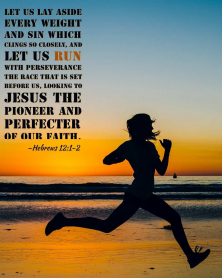
Twentieth Sunday in Ordinary Time Weekend of August 17/18, 2019
In today’s second reading, we hear the author of the letter to the Hebrews liken the daily life of the Christian steward to a race, a long-distance race perhaps, certainly not a sprint; requiring endurance and a single-minded focus on Jesus at the finish line. Good stewards are firmly committed to running the race, to live the Christian life to the fullest, to keep their eyes focused on Jesus. They don’t grow weary. They don’t lose heart. They know there is immense joy waiting for them at the finish line. Are you fully committed to living each day for Christ?
Are you running the race, or are you simply jogging? Just walking? Sitting? Going backwards? Going nowhere? Some of us may want to reflect on what we can do to run the race with even more conviction. Others may want to reflect on how to simply enter the race and start running

